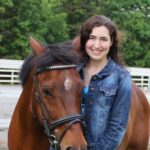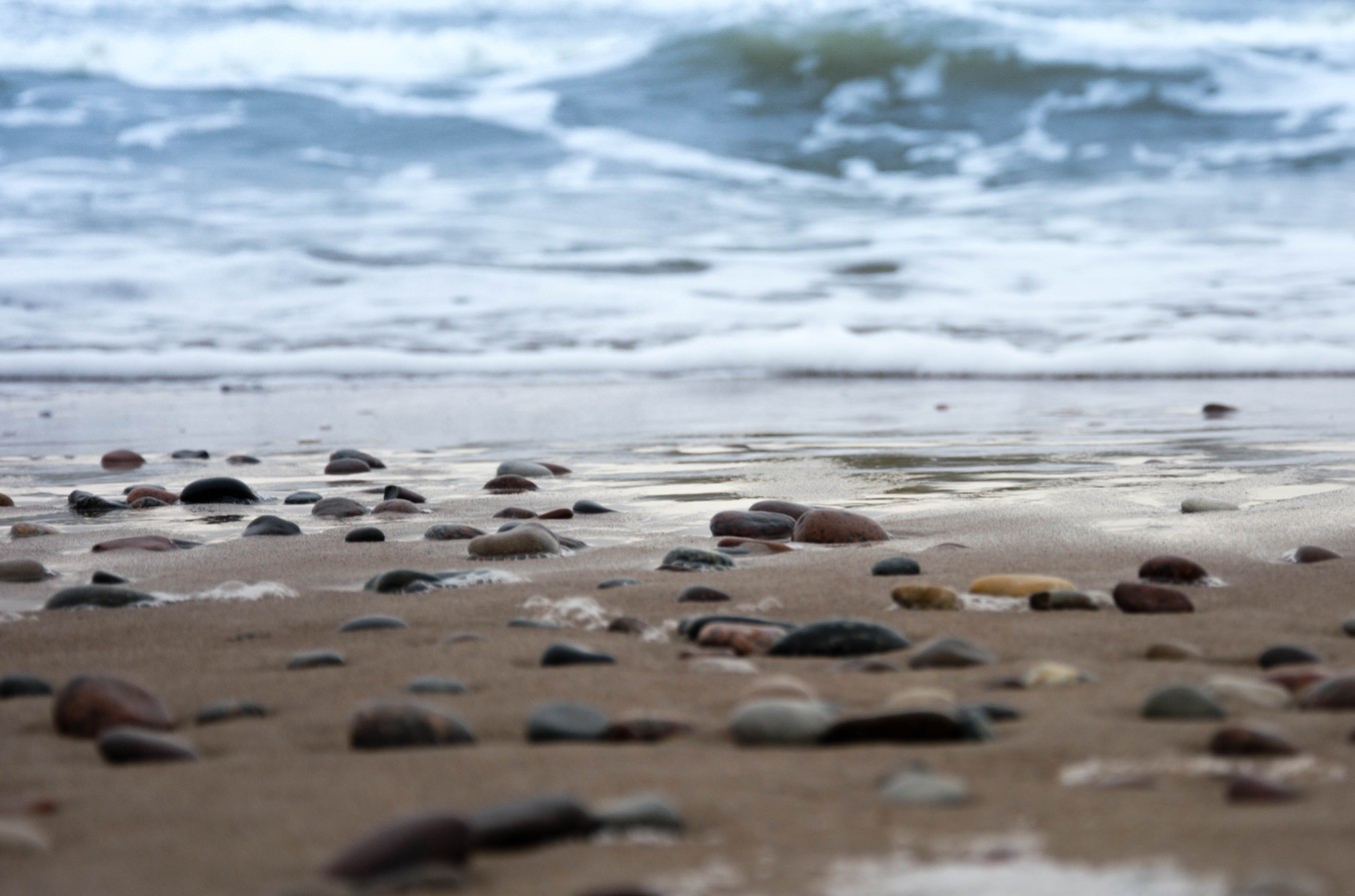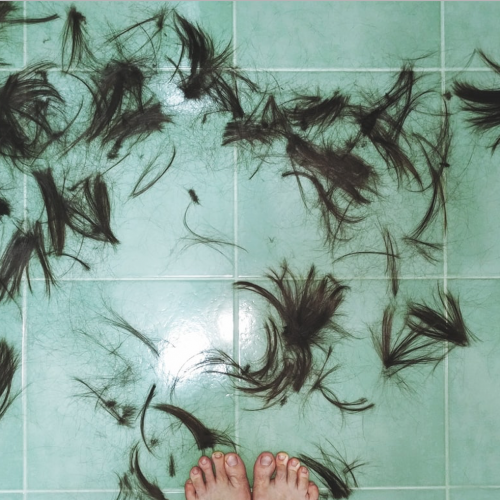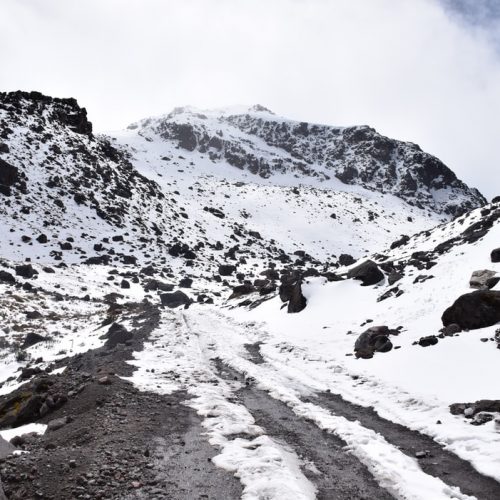They call me “horse-girl” at recess. “Thank you,” I say, and gallop away on my wrong two feet. The wind in my mane, I imagine how my arms would move if they too reached for the ground, hooves instead of toenails cutting into the loam as I leap over a stump. I pause at the top of the hill to survey the land below: the paved court for hopscotch and dodgeball, the diamond of rusty, netless basketball hoop skeletons where the cool kids play kickball, and grassy fields stretching beyond a few shady trees. Where should I run to next?
*
At the beach with my grandparents, I charge into the waves and splash in the cold water looking for skipping stones, each stride intentional and graceful and alien. I am not a human then. A new wave crashes, and I shy sideways, cantering away from the reaching foam. You can’t catch me. I’m free. Shells poke the soles of my feet, but I imagine hooves and run over them anyway.
I hand a flat rock to my grandfather. He skips it over the shallow tide—one-two-three-four-five-six-seven-eight—and it sinks. I canter in pursuit and fish the stone out of the rolling sands and tumbling shells of empty mussels. It is the best one I’ve ever found, and I don’t want to lose it. It skipped up to eleven—almost my age. I was surprised because it isn’t completely flat, and it isn’t completely smooth. It has scars on one side where mussels used to cling before it escaped their grasp. Too much character, I almost didn’t pick it up. But it beats all the others.
I chase another stone—one-two-(three), one-two-(three)—into the churning sea. It is an excuse to be wild. It’s an excuse to splash through shallows and thunder over sand, as though I weren’t getting too old for this. People are starting to notice.
“You still pretend to be a horse?” Grandma asks me.
“I’m not pretending. I’m just fetching rocks.”
People like dogs more than horses. People like dogs so much they compare horses to dogs. I fetch more rocks.
My grandfather holds out his hand, and I place the other flat stones in his palm, but I pretend I lost the best one.
He’s disappointed. “It was a winner. Could’ve gotten to twelve.”
I nod. I didn’t trust the tide to let me keep it. I chase the next best stone—one-two-three-four-five—and it sinks. I lose it in the riptide.
I take the winner home and put it in a box, far from its saltwater origins. Far from the sting of the wind. It sits in the box, all dried up and waiting for something.
*
I walk along the edge of the street on two booted feet. I cut off the other two, and the imaginary hooves. Everything but my mane is gone, and even that is thinning. The wind tickles my cheek. Follow me. But I can’t. Adults aren’t free unless there’s a child to make them pretend. Except me. I am always pretending, but I am still not free.
Beside me, bare hooves smack four beats on the pavement. It is too hot today, and I’m exhausted from work, so I got to the barn late—the sun is close to setting. I met my horse with a halter at the stall door, and we strode out here onto the street, not pausing to scrub the mud out of his coat or pull the twigs from his tail. He swishes at flies. I hope the twigs are an extra sting to keep their bite from his skin.
I don’t notice that my mind has wandered until he bumps my hip with his nose. Hey. I’m still here. Pay attention to me.
I put a hand on the smooth auburn hairs of his neck, right behind his black-tipped ears, and scratch his poll. He used to be afraid of this kind of touch, but I have rubbed the trauma out of his skin. The memories still haunt him. There’s nothing I can do about that.
A man pulls up in a car and pauses. Rolls down his window. “You’ve got the biggest dog in the neighborhood.” He drives away, and my laugh is as mechanical as the car that hums around him. My big dog snorts and steps off the road, tugging me onto the grass.
*
On the weekends, time is free. I brush my horse until he shines—even his face. I place a bareback pad across the anchor-shaped white hairs on his withers—scars from a saddle someone didn’t bother to fit—and loop the reins over his head. I stopped using a bit years ago. He doesn’t like the pressure of the metal against the scar that carves a jagged canyon into the right half of his tongue. He told me, and I listened.
I settle my weight on his back, and he steps off, eager to move. I shouldn’t let him make decisions like that, but I do. We turn off the pavement, and the echo of hoofbeats sinks into a dull thud on the soft trail. I dodge low-hanging branches and nudge his shoulders toward the least rocky side of the path. A horsefly lands on his shoulder, and I smack it with my palm. It falls to the ground under his stamping hooves and, for a moment, I am grateful for these hands.
Stones skip freely in our wake as we climb the hill to the steel tower. The wind tousles my horse’s mane and caresses my cheek, carrying the scent of dirt and leaves and horse sweat to the sea. My hips sway with the rhythm of each step: one-two-three-four beats—the way my body was always meant to move.

Elanna Bellows
As a child, Elanna Bellows pretended to be a horse, wrote stories on the back of napkins to fend off boredom, and had the audacity as a third grader to try to teach her much younger brother multiplication. Now she teaches writing for real at a charter school in Massachusetts, writes in notebooks instead of on napkins, and pretends to be an adult.





